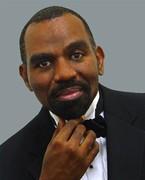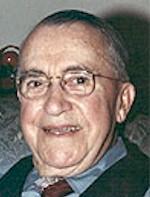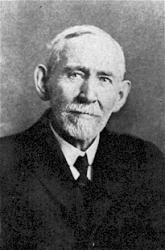Planning worship?
Check out our sister site, ZeteoSearch.org,
for 20+ additional resources related to your search.
- |
User Links
Person Results
John Chandler
1806 - 1876 Person Name: John Chandler Scripture: Numbers 6:25 Translator of "On Jordan's Bank the Baptist's Cry" in Glory to God John Chandler, one of the most successful translators of hymns, was born at Witley in Surrey, June 16, 1806. He was educated at Corpus Christi College, Oxford, B.A. 1827, M.A. 1830. Ordained deacon in 1831 and priest in 1832, he succeeded his father as the patron and vicar of Whitley, in 1837. His first volume, entitled The Hymns of the Primitive Church, now first Collected, Translated and Arranged, 1837, contained 100 hymns, for the most part ancient, with a few additions from the Paris Breviary of 1736. Four years later, he republished this volume under the title of hymns of the Church, mostly primitive, collected, translated and arranged for public use, 1841. Other publications include a Life of William of Wykeham, 1842, and Horae sacrae: prayers and meditations from the writings of the divines of the Anglican Church, 1854, as well as numerous sermons and tracts. Chandler died at Putney on July 1, 1876.
--The Hymnal 1940 Companion
===============
Chandler, John, M.A.,one of the earliest and most successful of modern translators of Latin hymns, son of the Rev. John F. Chandler, was born at Witley, Godalming, Surrey, June 16, 1806, and educated at Corpus Christi College, Oxford, where he graduated in 1827. He took Holy Orders in 1831, and became Vicar of Witley in 1837. He died at Putney, July 1, 1876. Besides numerous Sermons and Tracts, his prose works include Life of William of Wykeham, 1842; and Horae Sacrae; Prayers and Meditations from the writings of the Divines of the Anglican Church, with an Introduction, 1844. His translations, he says, arose out of his desire to see the ancient prayers of the Anglican Liturgy accompanied by hymns of a corresponding date of composition, and his inability to find these hymns until he says,
"My attention was a short time ago directed to some translations [by Isaac Williams] which appeared from time to time in the British Magazine, very beautifully executed, of some hymns extracted from the Parisian Breviary,with originals annexed. Some, indeed, of the Sapphic and Alcaic and other Horatian metres, seem to be of little value; but the rest, of the peculiar hymn-metre, Dimeter Iambics, appear ancient, simple, striking, and devotional—in a word in every way likely to answer our purpose. So I got a copy of the Parisian Breviary [1736], and one or two other old books of Latin Hymns, especially one compiled by Georgius Cassander, printed at Cologne, in the year 1556, and regularly applied myself to the work of selection and translation. The result is the collection I now lay before the public." Preface, Hymns of the Primitive Church, viii., ix.
This collection is:—
(1) The Hymns of the Primitive Church, now first Collected, Translated, and Arranged, by the Rev. J. Chandler. London, John W. Parker, 1837. These translations were accompanied by the Latin texts. The trsanslations rearranged, with additional translations, original hymns by Chandler and a few taken from other sources, were republished as (2) The Hymns of the Church, mostly Primitive, Collected, Translated, and Arranged/or Public Use, by the Rev. J. Chandler, M.A. London, John W. Parker, 1841.
From these works from 30 to 40 translations have come gradually into common use, some of which hold a foremost place in modern hymnals, "Alleluia, best and sweetest;" "Christ is our Corner Stone;" "On Jordan's bank the Baptist's cry;" "Jesus, our Hope, our hearts' Desire;" "Now, my soul, thy voice upraising;" "Once more the solemn season calls;" and, "O Jesu, Lord of heavenly grace;" being those which are most widely used. Although Chandler's translations are somewhat free, and, in a few instances, doctrinal difficulties are either evaded or softened down, yet their popularity is unquestionably greater than the translations of several others whose renderings are more massive in style and more literal in execution.
--John Julian, Dictionary of Hymnology (1907)
John Chandler
Theodore Baker
1851 - 1934 Scripture: Numbers 6:24 Translator of "We Gather Together to Ask the Lord's Blessing" in The Worshipbook Theodore Baker (b. New York, NY, 1851; d. Dresden, Germany, 1934). Baker is well known as the compiler of Baker's Biographical Dictionary of Musicians (first ed. 1900), the first major music reference work that included American composers. Baker studied music in Leipzig, Germany, and wrote a dissertation on the music of the Seneca people of New York State–one of the first studies of the music of American Indians. From 1892 until his retirement in 1926, Baker was a literary editor and translator for G. Schirmer, Inc., in New York City. In 1926, he returned to Germany.
Psalter Hymnal Handbook, 1987
Theodore Baker
Eduard Kremser

1838 - 1914 Scripture: Numbers 6:24 Arranger of "KREMSER" in The Worshipbook Eduard Kremser was born 10 October 1838 in Vienna and died 26 November 1914 in Vienna. He was a choir director, conductor, composer and musicologist. He was the arranger of the music for male voices in Sechs altniederländische Volkslieder, a collection of six Dutch folk songs from Adriaan Valerius' collection Nederlandtsche gedenck-clanck. From this collection comes the tune which is named after him and is sung with the English text "We Gather Together." He also edited and arranged a 3 volume set of German and Austrian folk music: Wiener Lieder und Tänze: im Auftrage der Gemeindevertretimg der Stadt Wien (published 1912-1925) as well as other volumes of folk music.
Dianne Shapiro
Eduard Kremser
Conrad Kocher

1786 - 1872 Scripture: Numbers 6:22-26 Composer of "DIX" in Lift Up Your Hearts Trained as a teacher, Conrad Kocher (b. Ditzingen, Wurttemberg, Germany, 1786; d. Stuttgart, Germany, 1872) moved to St. Petersburg, Russia, to work as a tutor at the age of seventeen. But his love for the music of Haydn and Mozart impelled him to a career in music. He moved back to Germany in 1811, settled in Stuttgart, and remained there for most of his life. The prestigious Cotta music firm published some of his early compositions and sent him to study music in Italy, where he came under the influence of Palestrina's music. In 1821 Kocher founded the School for Sacred Song in Stuttgart, which popularized four-part singing in the churches of that region. He was organist and choir director at the Stiftskirche in Stuttgart from 1827 to 1865. Kocher wrote a treatise on church music, Die Tonkunst in der Kirche (1823), collected a large number of chorales in Zions Harfe (1855), and composed an oratorio, two operas, and some sonatas. William H. Monk created the current form of DIX by revising and shortening Conrad Kocher's chorale melody for “Treuer Heiland, wir sind hier,” found in Kocher's Stimmen aus dem Reiche Gottes (1838).
Bert Polman
Conrad Kocher
Barbara Boertje
b. 1959 Person Name: Barbara Boertje, b. 1959 Scripture: Numbers 6:24-26 Composer of "[The Lord bless you and keep you]" in Sing! A New Creation
Barbara Boertje
John B. Gausby
Scripture: Numbers 6:24-26 Composer of "THE LORD BLESS THEE" in The Hymnary for use in Baptist churches
John B. Gausby
Carl Haywood

b. 1949 Person Name: Carl Haywood (b. 1949) Scripture: Numbers 6:24-26 Composer of "[The Lord bless you and keep you]" in Lift Every Voice and Sing II
Carl Haywood
Norman E. Johnson
1928 - 1983 Person Name: Norman Johnson Scripture: Numbers 6:24-26 Composer of "[The Lord bless you and keep you]" in Praise! Our Songs and Hymns
Norman E. Johnson
Henry Barraclough

1891 - 1983 Scripture: Numbers 6:24-26 Composer of "[The Lord bless thee, and keep thee]" in Conference Hymnal Barraclough was educated in England, and studied organ and piano from the age of five. He worked for a while as a claims adjuster for the Car and General Insurance Company. From 1911-13, he was secretary to Member of Parliament George Scott Robertson. He then joined the Chapman-Alexander evangelistic team as a pianist, and traveled with them to America and remained there. He fought in World War I, rising to the rank of sergeant major, then became secretary, and later an administrator, of the General Assembly of the Presbyterian Church (1919-61). He wrote words for 20 hymns and tunes to 120.
© The Cyber Hymnal™ (www.hymntime.com/tch)
Henry Barraclough
F. A. Graves

1856 - 1927 Scripture: Numbers 6:24-26 Composer of "[The Lord bless thee and keep thee]" in The Finest of the Wheat No. 2 Rv Frederick Arthur Graves USA 1856-1927. Born at Williamstown, MA, he was raised in a Christian family, but was orphaned at age 9 after the death of his father, a taylor, then three years later his mother (tuberculosis), he lived on a farm with a family names Hollis that worked him hard and treated him poorly. He was diagnosed with epilepsy when 14. At 21 he moved to Nobles County, MN, and it seemed that his seizures had stopped. Grateful for that, he served the American Sunday School Union as an organizer and evangelist. He was musical, and after age 35 wrote 43 songs. He, with wife Vina, raised three children, Arthur, Irene, and Carl. He studied Bible and music in Chicago, IL and Northfield, MA. Returning to Minneapolis and hearing evangelist John A Dowie, he experienced permanent healing, which provided a backdrop for his gospel songs. He was ordained an Assemblies of God minister in 1916. Later, he moved to Zion Hill,IL, where he lived the rest of his life. He died at Zion City, IL. Nearly 1000 people attended his funeral there.
John Perry
F. A. Graves


 My Starred Hymns
My Starred Hymns


